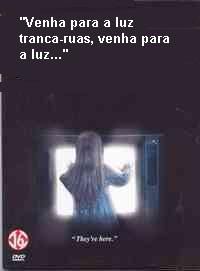E que mentes se comunicam , mesmo sem prova alguma de que isso seja possivel !
Prova não, evidência.
3. Theories of Time and Space
Precognition, or the ability to foresee the future, seems to carry with it the implication that the future in some sense exists and is capable of affecting the present. In some cases, such as the falling chandelier case discussed in the preceding section, it appears that knowledge acquired during a precognitive experience can form the basis for action to prevent the precognized event (e.g., the death of the baby) from occurring. In cases of this type, it almost appears as if two futures ``exist,'' the precognized future (in which the baby is killed) and the actualized future (in which the chandelier falls but fails to kill the baby). Several parapsychologists, most notably Schmidt, have in recent years suggested that the mind may be capable of directly influencing events that have already occurred, through retroactive psychokinesis. The apparent retrocausal relationships involved in precognition and retroactive PK have led many parapsychological theorists to postulate the existence of signals that travel backward in time. The apparent paradoxes involved in cases of precognition followed by intervention (such as the falling chandelier case) have led several theorists to propose models involving a ``branching'' time line to account for the apparent existence of alternate futures. Other parapsychologists have claimed that the existing evidence can be explained without invoking backward causal chains or multi-dimensional time schemes.
Because many of the theories to be discussed are couched in terms of modern physics and utilize the concept of spacetime as developed in the special and general theories of relativity, it will be necessary to begin this section with an introduction to relativistic conceptions of space and time. The reader already conversant with elementary relativistic physics may wish to skip this section and proceed directly to the discussion of parapsychological theories of time beginning in Section 3.2.
http://www.pesquisapsi.com/books/teopsi ... _Time.html
4. Signal Theories of ESP and PK
Many theorists have tried to explain psi phenomena on the basis of known or hypothetical physical signaling processes, The carriers of such signals have sometimes been hypothesized to be particles, such as photons and neutrinos, and sometimes to be fields or force surfaces. Theories of precognition often involve signals that travel backward in time; the hypothesized carriers of such retrocausal signals have included tachyons, advanced electromagnetic waves, and antimatter (under Feynman's interpretation). Section 4.1 will treat theories involving signals that travel in the usual, forward time direction, whereas Section 4.2 will treat theories employing retrocausal signals,
http://www.pesquisapsi.com/books/teopsi ... ories.html
Experimental Evidence Suggestive of Anomalous Consciousness Interactions
Deborah L. Delanoy
Department of Psychology, University of Edinburgh
7 George Square, Edinburgh, Scotland, U.K.
EH8 9JZ.
From Ghista, Dhanjoo N. (Ed.): Biomedical and Life Physics, pp. 398-410.
Proceedings of the Second Gauss Symposium, 2-8 August, 1993, Munich.
xvi, 545pp. Vieweg, Braunschweig/Wiesbaden, 1996 (email for information)
ISBN 3-528-06877-9
* 1 Introduction
* 2 The ganzfeld debate
* 3 Looking into the future: Meta-analysis of precognition ESP studies
* 4 Influencing randomness in physical systems: Two meta-analyses
* 5 Direct mental interactions with living systems (DMILS)
* 6 Relating ESP to personality traits: Two meta-analyses
* 7 Discussion
* 8 References
* About this document ...
http://www.tcm.phy.cam.ac.uk/~bdj10/psi ... lanoy.html
Evidence for psi:
http://www.psy.gu.se/EJP/EJP%20ULT%20AP%20GB.pdf




